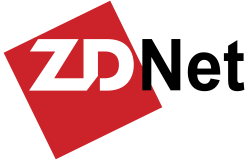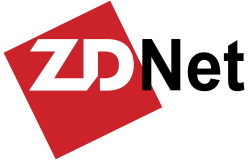
Press Coverage
Media Inquiries Contact:
Jeff Young, Vice President, Corporate Communications
PR@progress.com
Progress Acquires Ipswitch for $225 Million, Tops First Quarter Targets
Progress, which specializes in application development, said it will acquire Ipswitch for $225 million in cash.
Ipswitch makes data file transfer and network management software. Progress said the deal will add to non-GAAP earnings and cash flow as well as boost its small and medium-sized businesses products.
JavaScript Based Low Code Platform Emerges from Progress
Progress has revealed its strategy and approach for enabling high productivity application development. As part of this strategy, Progress announced the latest release of the Progress Kinvey platform, delivering a combination of high productivity, full developer control over the app experience, and operational efficiency for modern workloads with dynamic scale.
Progress Updates Low-Code-for-Pros Kinvey Platform
Progress Software has updated its low-code Kinvey platform that -- unlike competitors that target the "business user" audience -- positions itself as a productivity tool for professional developers.
Progress said it's providing a "new form of low-code platform" that's focused on professional developers, enabling high productivity capabilities along with delivery of different apps that run natively across devices and platforms across multiple channels.
Progress Kinvey Brings More Advanced Low-Code Capabilities to Professional Developers
Low-code adoption is beginning to pick up as the demands to deliver software faster starts to weigh on businesses. Progress believes its strategy and approach for high productivity application development will have businesses pick up the pace and remove the complexity traditional offerings pose when trying to develop more advanced applications.
6 Top Challenges to Successful Data Integration
Data variety, velocity, veracity, volume and sources are among the top factors affecting whether an organization can successfully integrate disparate data.
Progress, a provider of application development and digital experience technologies, is releasing the latest version of Progress OpenEdge, delivering improvements in database throughput performance and more.
The 12.0 release also provides a foundation for application evolution, with advanced features and functionality that give applications the always-on availability, agility, and scale required to support modern applications.
Progress Announces Milestone Release of its App Development Platform OpenEdge
Progress its announcing a three-fold throughput performance improvement with the latest release of its application development platform. According to the company, Progress OpenEdge 12 features a 200 percent improvement in database throughput performance, responsiveness and scalability. In addition, the release comes with new advanced features and functionality to give modern apps always-on availability and enhanced agility.
SD Times News Digest: Google Acquires Alooma, NativeScript 5.2, and Sourcegraph 3.1
NativeScript 5.2 has been released with official support for Vue.js. While the NativeScript-Vue effort started by Igor Randjelovic has allowed NativeScript and Vue applications to be created, this release is the first time that Vue.js will be officially supported, the company explained.
Tapping into the WeWork Effect with an app?
WeWork’s seemingly simplistic approach is having a profound effect on the market, leading enterprise organizations to try to replicate the sense of community, collaboration, and engagement it creates. Now competitors are fighting back with apps — and the implications as this plays out are relevant to enterprises everywhere.
Data Integration Issues Still Impede Digital Progress, Survey Shows
The foundation of a digitally savvy enterprise is data, and lots of it, coming from all corners, and having the right data at the right time being digested and turned into insights that guide both humans and machines to make the right things happen. But organizations are still fumbling in their efforts to bring it all together. Cloud services help -- but only go so far, and may even complicate things even more.
Survey Reveals Cloud Migration Hurdles, Opportunities
Progress, a Bedford, Massachusetts-based provider of application development and digital experience technologies, has shared the results of its 2018 Data Connectivity Survey, which polled 1,400-plus business and IT professionals about their top-of-mind concerns as they migrate to the cloud.
Podcast: WCM Market Trends & Predictions With Progress CMO
On this podcast, Laura Myers and I share our thoughts on the WCM market for 2019, the multi-channel customer experience, and why customer relationships are vital to your business's success.
Also joining us in the conversation will be Loren Jarrett, CMO at Progress to share her thoughts on the topics above. I was very fortunate to hear Loren speak this past year at ProgressNEXT 2018 in Boston
Blazor Now Runs on a Server: What You Should Know
It’s a year or so since Microsoft unveiled Blazor, its tool for running .Net code in the browser. It’s been an eventful year with several releases, each adding more and more code compatibility. Now described as “full-stack web development with C#,” Blazor runs on both clients and servers.
Progress Previews Telerik UI for Blazor
Tooling vendor Progress said developers in the .NET ecosystem asked it to support Microsoft's experimental Blazor project, which it has just done in a new release.
Progress Provides New Support for Vue and .NET Developers Across its Product Line
Progress is updating its web UI toolkit to support the most popular JavaScript frameworks with newly announced extended native support for Vue. Vue joins the product’s existing support for React and Angular.
Progress has announced the release of Progress DataDirect Autonomous REST Connector. The new solution enables teams to build connectors for applications quickly without needing to write custom code. According to Progress, the Data Direct Autonomous REST Connector allows developers to fully access data from SQL-based applications.
Creating Native Mobile Apps Without Writing Native Code
Native programming can strike fear into the heart of anyone that doesn't know how to write it. While we as programmers understand our limits and capabilities, we still like to brag about the complicated function or route we just wrote. But just drop the words "Objective C, or Android Java" into the next conversation you have with fellow programmers and see who starts biting their nails.
Next Generation Low Code Platforms Snub Citizen Developers
As businesses trend more toward buy-not-build solutions, they look to development platforms that can offer frictionless delivery of applications without needing to provide additional training for developers. Therefore, it is important to differentiate between the high-productivity/low-code approaches and the 'citizen developer' approach: one is for dev professionals looking to operate more efficiently, and the other is, essentially, an amateur programmer creating simple applications – not ideal for professional IT delivery.
JavaScript Has Come a Long Way and Shows No Sign of Slowing
Since its release more than 20 years ago, JavaScript has gone through a lot. But even though it has come so far, the language continues to grow and evolve, and interest in using it is still rising. JavaScript is an incredibly approachable language, which probably has something to do with why it has become so popular among developers. Its robust community continues to add to JavaScript’s rich ecosystem of libraries and frameworks.
The Future is Now: Reducing Patient No-Shows with AI and ML
The Mark Twain quip — “Never put off till tomorrow, what you can do the day after tomorrow.” — might be an irreverent, tongue-in-check approach to how some healthcare executives chose to purchase and adopt information technology. For many healthcare executives, the day after tomorrow has arrived.












